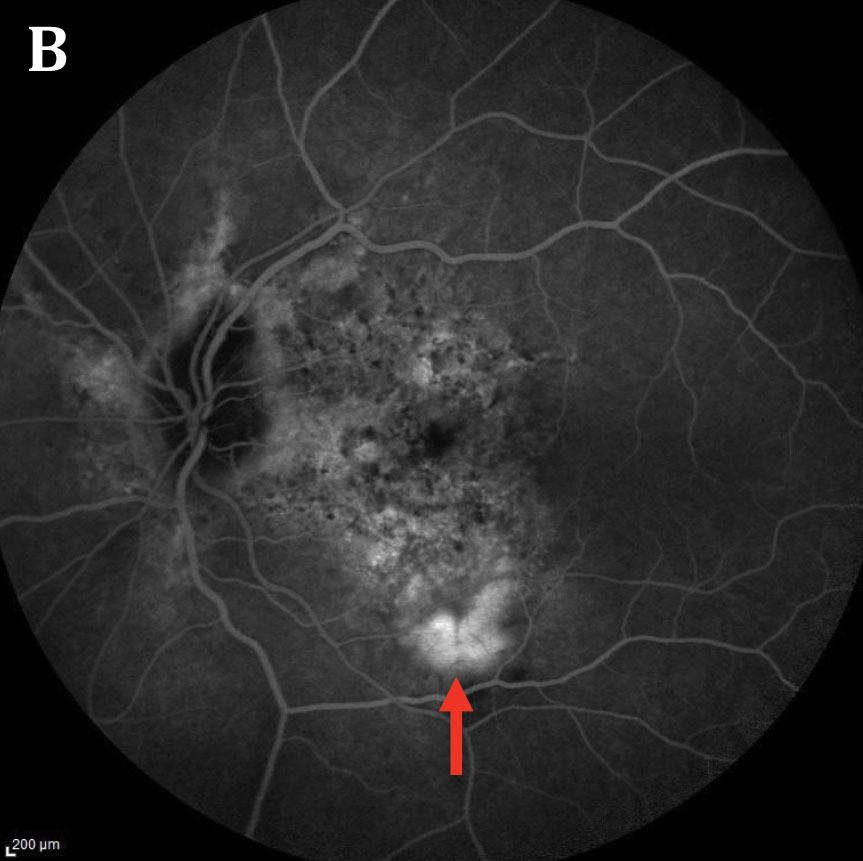 |
Anti-VEGF was observed to be an effective treatment in patients with CNV associated with angioid streaks. Photo: Jay M. Haynie, OD. Click image to enlarge. |
A recent study exploring intravitreal anti-vascular endothelial growth factor (VEGF) injections as a treatment for choroidal neovascularization (CNV) associated with angioid streaks confirmed the effectiveness of this approach. The data suggests that anti-VEGF leads to a significant improvement in best-corrected visual acuity (BCVA) in the first three months and then remains stable among the majority of patients through 48 months.
This multicenter retrospective cohort study included eyes with CNV secondary to angioid streaks treated with anti-VEGF injections. The researchers collected BCVA in ETDRS letters, qualitative and quantitative (foveal thickness) OCT parameters, anti-VEGF type and number of injections at baseline as well as at three, six, 12, 24, 36, 48, 60 and 72 months.
Thirty-nine eyes from 29 patients were included in this analysis. Of the participants, 59% were female. The study authors reported that BCVA was 59.3±23.3 letters at baseline and 63.7±21.9 letters at 48 months. At three months, they found that BCVA improved 6.9±11.7 letters. After this, it remained stable.
Additionally, the data showed that the mean foveal thickness decreased from 343.3±120.2μm at baseline to 268.3±65.4μm at 48 months. In terms of injections, the mean number was 4.6±2.1 at 12 months. Between 36 and 48 months, this decreased to 1.7±2.4 injections, according to the study authors.
“This study demonstrated that the functional and morphologic response to anti-VEGF therapy for CNV related to angioid streaks is generally satisfactory and may be maintained in the long term,” the researchers noted. “Of note, the comparison across retrospective and real-world studies should be done with caution as the study populations vary with respect to the study settings, dosing regimens, previous treatment profiles and underlying comorbidities.”
They concluded that further long-term prospective studies with a larger sample size are needed to better understand the long-term effectiveness of this approach as well as the best protocol regimen of anti-VEGF treatment in this patient population.
Torres-Costa S, Bernardes J, Sousa Mano S, et al. Long-term effect of anti-vascular endothelial growth factor (Anti-VEGF) injections in choroidal neovascularization secondary to angioid streaks. J Ophthalmol. July 9, 2022. [Epub ahead of print]. |

